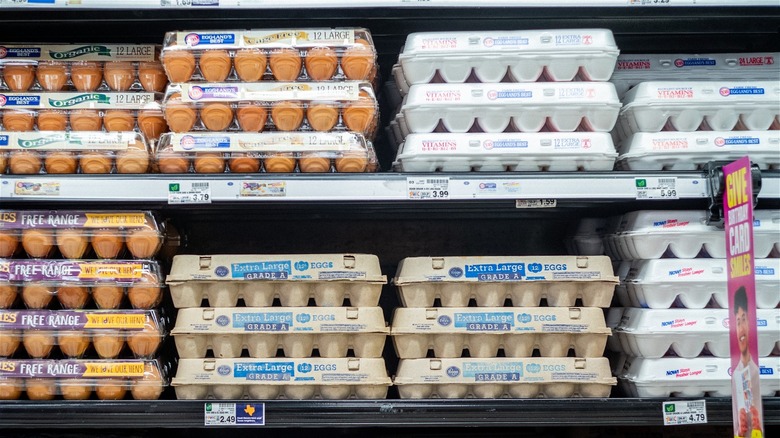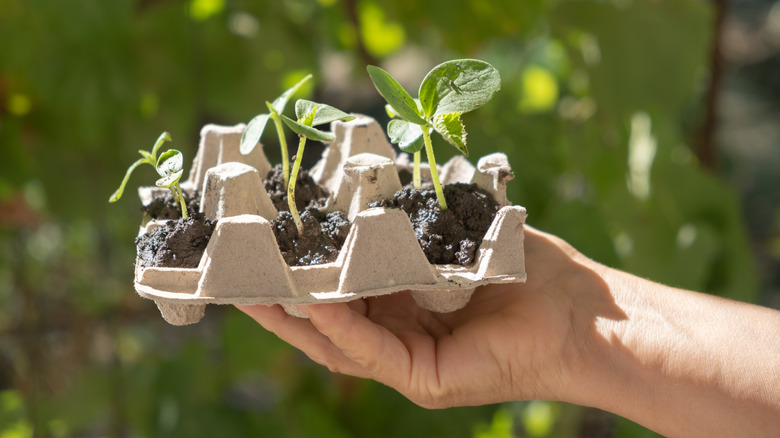The Material Of Egg Cartons Matters
When Maryland became the first state to ban foam containers, Jacob Fenston, a reporter at Washington's NPR station WAMU 88.5 asked the question on everybody's mind: What possibly will happen to the eggs?
The Maryland ban came after debate over how eggs would survive in cardboard cartons rather than expanded polystyrene (Styrofoam) ones. At least one senator insisted that foam was the perfect cocoon to keep eggs safe.
Turns out, that senator was wrong. According to the Journal of Food Science and Technology, your eggs stand a better chance of surviving a harrowing trip home from the grocery store in a cardboard carton than a foam one. The journal featured a study that examined the mechanics of egg cartons including those made of cardboard, expanded polystyrene, and solid polystyrene. Each was manufactured by a different distributor and each had similar dimensions. When put to the test (which in this case meant compressing the cartons using a fancy machine designed by the Agricultural Engineering Department from the University of Zagreb), cardboard won.
WAMU 88.5's Fenston ran a little less systematic study of his own, in which he dropped egg cartons filled with eggs from waist-high to see which would result in more broken eggs. Like the scientific study, cardboard came out as the resounding winner. When Fenston repeated his test, all twelve eggs broke in the foam carton.
While that's great news for the eggs (and the environment), cardboard egg cartons come with a few caveats you might not expect.
Paper cartons can be composted, but not recycled
In news that will come as a shock to most of us, typical cardboard egg cartons are not recyclable. According to "zero waste" laboratory Eureka! Recycling, the best recycling tip for cardboard egg cartons is to compost them, not send them through the industrial recycling process. Though that sounds off-track considering cardboard cartons are paper products, and paper is a prime candidate for recycling, the fiber size of the cardboard that makes up egg cartons is a problem for the recycling process. The fibers are too short.
The industrial recycling process re-pulps paper and working with too-short fibers interrupts that process. Too-short fibers fail to be re-pulped. When they are mixed with longer fibers, the non-re-pulped short fibers weaken the final product and diminish the overall quality.
According to the book "Next-Generation Textiles," the process of recycling is always undergoing improvements to accommodate disadvantaged materials, like materials that have shorter fibers. The recycling industry is breaking down its procedures into primary, secondary, tertiary, and quaternary approaches in order to find the best way to use all materials.
While the recycling industry is pivoting to handle short-fiber materials, cardboard egg cartons are still good for the environment in terms of composting, says Eureka Recycling. They're perfect for starting seedlings that then need to be replanted in your backyard or for neighbors who have chickens who wish to share eggs — just make sure to never put used egg shells back in your egg cartons.

